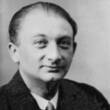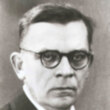Schlump
Description
More Details
Similar Titles From NoveList
Similar Authors From NoveList
Published Reviews
Publisher's Weekly Review
The boisterous and often brutal story of a young German's military service during World War I, Grimm's long-lost novel is a clear-eyed account of life during wartime. The unfortunately nicknamed Schlump joins the army on his 17th birthday in 1915, thinking of "nothing but girls and the war." His ardor continues with his cushy first assignment: he's "responsible for the administration of three villages" in German-occupied France. Schlump becomes the object of the village girls' affections and performs his task well, until he is reassigned to the front. In the trenches, Schlump is wounded twice, he sees fellow soldiers butchered by artillery and by one another, and even his dreams are haunted by "bullets, lightning flashes, roaring thunder... soldiers washed into the mud like fallen leaves." Wherever he's sent, Schlump finds comfort in the arms of willing women and hears other soldiers' tales of war brides, infidelity, madness, and violence. One soldier may have murdered his beloved; a lieutenant saw many of his men killed by friendly fire, the survivors forced to flee a burning hospital. Grimm's is a bloody picaresque with a fairy tale hero at its center; even as Germany is defeated and its armies retreat, Schlump "saw the world and the future in a thousand marvellous colours... surely there would be peace again now... What a golden era was beginning now!" Present-day readers will be touched and saddened by his enthusiasm. (Nov.) © Copyright PWxyz, LLC. All rights reserved.
Kirkus Book Review
A lost classic of anti-war literature is revived in a fresh, vigorous translation.His name may sound, to the ears of English speakers, like some kin of schlemiel or even schmuck, but Emil Schulzs nickname, given to him by a cop, means something along the lines of shrimp, scamp, scallywag and lumpa muddled concoction of all of these. He is all those things, and, conscripted into the WWIera German army, he is now, at the age of 17, the administrator in charge of three occupied French villages. There, writes Grimm, Schlump dreams, daydreams, chases women, and generally tries to avoid anything involving work; hes a sympathetic fellow but essentially lonely, a solitary figure as he wandered through the snowy fields of France. Things take a turn for the worse when the Americans join the war, and then Schlump is packed off to a diabolical front line, where he tastes war for real: in one nighttime scouting foray to capture some unsuspecting British soldier for information, a comrade of his fires a flare gun into a Tommys stomach, and all hell breaks loose: The Tommy was yelling, the machine guns firing at full tilt, and Schlump gave a shrill, noisy laugh. Sent behind the lines for convalescence, Schlump dreams and schemes his way into peacetime. Both comical and arch, the novel, writes German journalist Volker Weidermann in an afterword, might have made a dent, but Erich Maria Remarques All Quiet on the Western Front appeared at about the same time and was heralded as the German anti-war novel par excellence, pushing Grimms tale off the charts and into obscurity. The sad ending to Grimms own life marks a dark conclusion to his tale, which celebrates the resilience born of bucking the system, whether the military on one side or the griftier aspects of capitalism on the other. Not quite the equal of The Good Soldier Schweick but still a welcome contribution to the literature of the Great War and its discontents. Copyright Kirkus Reviews, used with permission.
Publishers Weekly Reviews
The boisterous and often brutal story of a young German's military service during World War I, Grimm's long-lost novel is a clear-eyed account of life during wartime. The unfortunately nicknamed Schlump joins the army on his 17th birthday in 1915, thinking of "nothing but girls and the war." His ardor continues with his cushy first assignment: he's "responsible for the administration of three villages" in German-occupied France. Schlump becomes the object of the village girls' affections and performs his task well, until he is reassigned to the front. In the trenches, Schlump is wounded twice, he sees fellow soldiers butchered by artillery and by one another, and even his dreams are haunted by "bullets, lightning flashes, roaring thunder... soldiers washed into the mud like fallen leaves." Wherever he's sent, Schlump finds comfort in the arms of willing women and hears other soldiers' tales of war brides, infidelity, madness, and violence. One soldier may have murdered his beloved; a lieutenant saw many of his men killed by friendly fire, the survivors forced to flee a burning hospital. Grimm's is a bloody picaresque with a fairy tale hero at its center; even as Germany is defeated and its armies retreat, Schlump "saw the world and the future in a thousand marvellous colours... surely there would be peace again now... What a golden era was beginning now!" Present-day readers will be touched and saddened by his enthusiasm. (Nov.)
[Page ]. Copyright 2016 PWxyz LLC
































